Though it’s a cuisine and culture I’ve grown up with my entire life, I can’t help but notice how the Basque Country is rising in prominence as a foodie haven. Suddenly, its cuisine and flavors are in style. Basque food is popping up everywhere – from local grocery stores to big name restaurants.
Here are six aspects of Basque cuisine that set it apart:
1. It’s shaped by the landscape
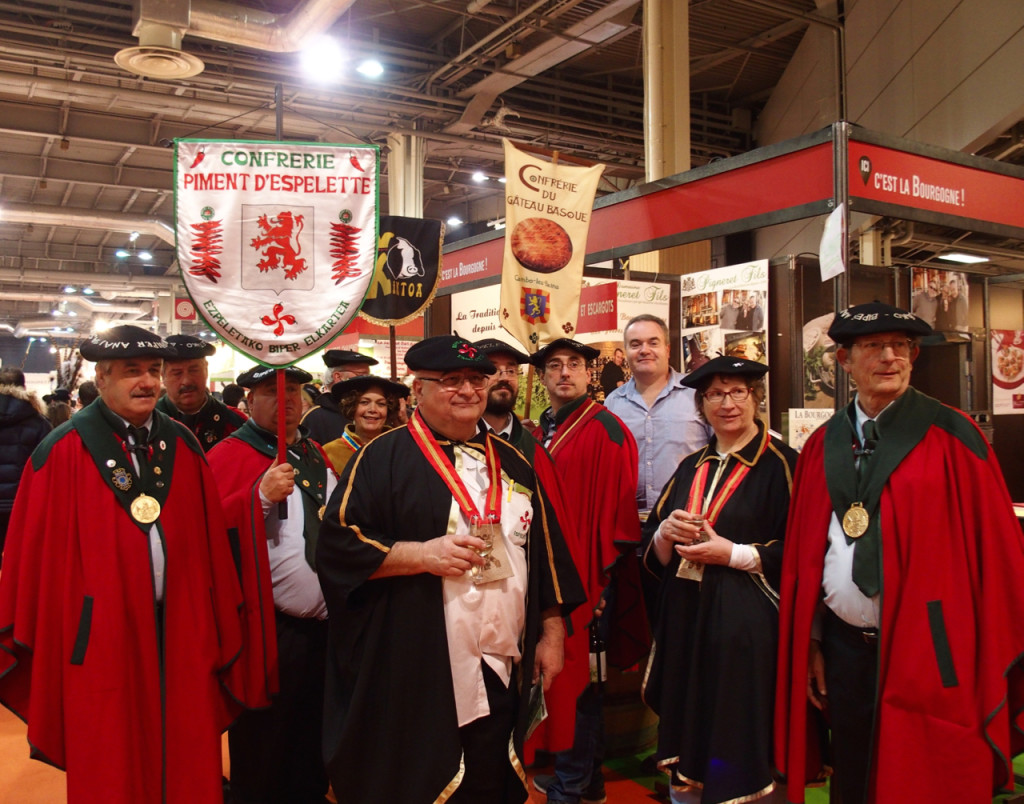
Photo by Camille Reisfield
The Basque Country overlaps the French and Spanish border, so its flavors come from the mountains, the valleys and the sea. Food is taken seriously here – whether it be from the first bite of a toast covered with goat cheese and honey in a noisy pintxos bar or cider water falling into a chilled glass.
2. Its Deep History
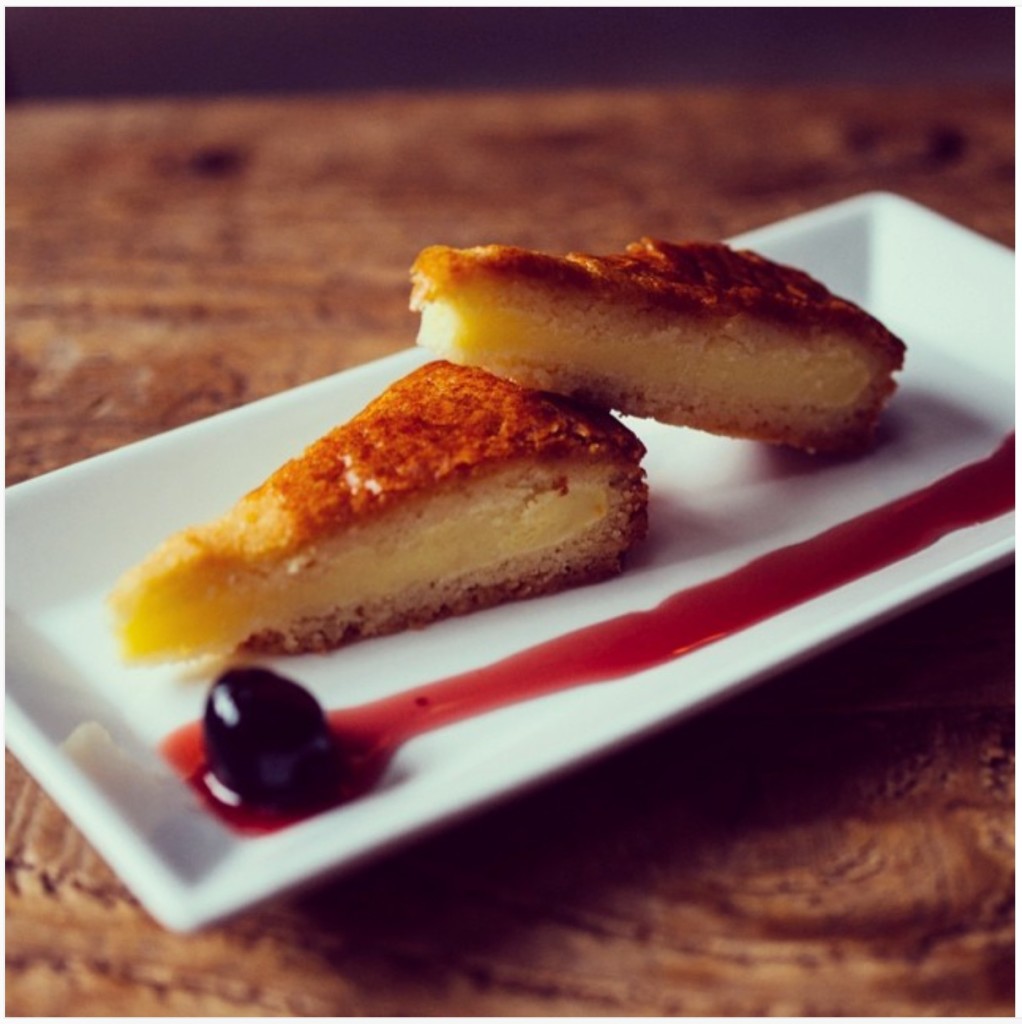
Photo courtesy of @piperadesf on Instagram
Decades-old gastronomic societies protect elements of traditions, demonstrating the culinary pride and history of basque flavors. One of the key characteristics of Basque cuisine is the fresh, regional produce prepared by the chefs to display all of the potential flavors and textures.
3. The Unique Ingredients
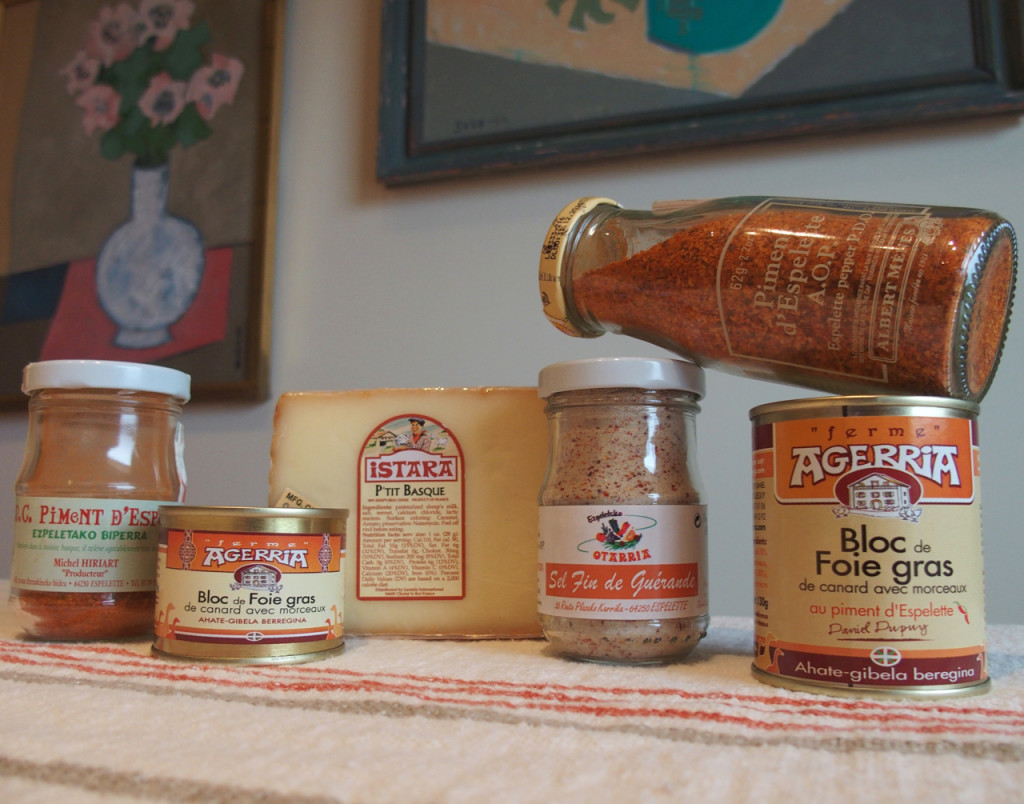
Photo by Camille Reisfield
The local cheeses, Itxassou cherries, piment d’Espelette (red peppers from the town of Espelette, France), ciders, cured Bayonne ham and Irouléguy wines that are all specialties protected and controlled by the governments of France and Spain are now routinely appearing on menus. Even Spoon has featured a Basque cocktail popular in the region and throughout Spain.
4. The People Behind the Flavors
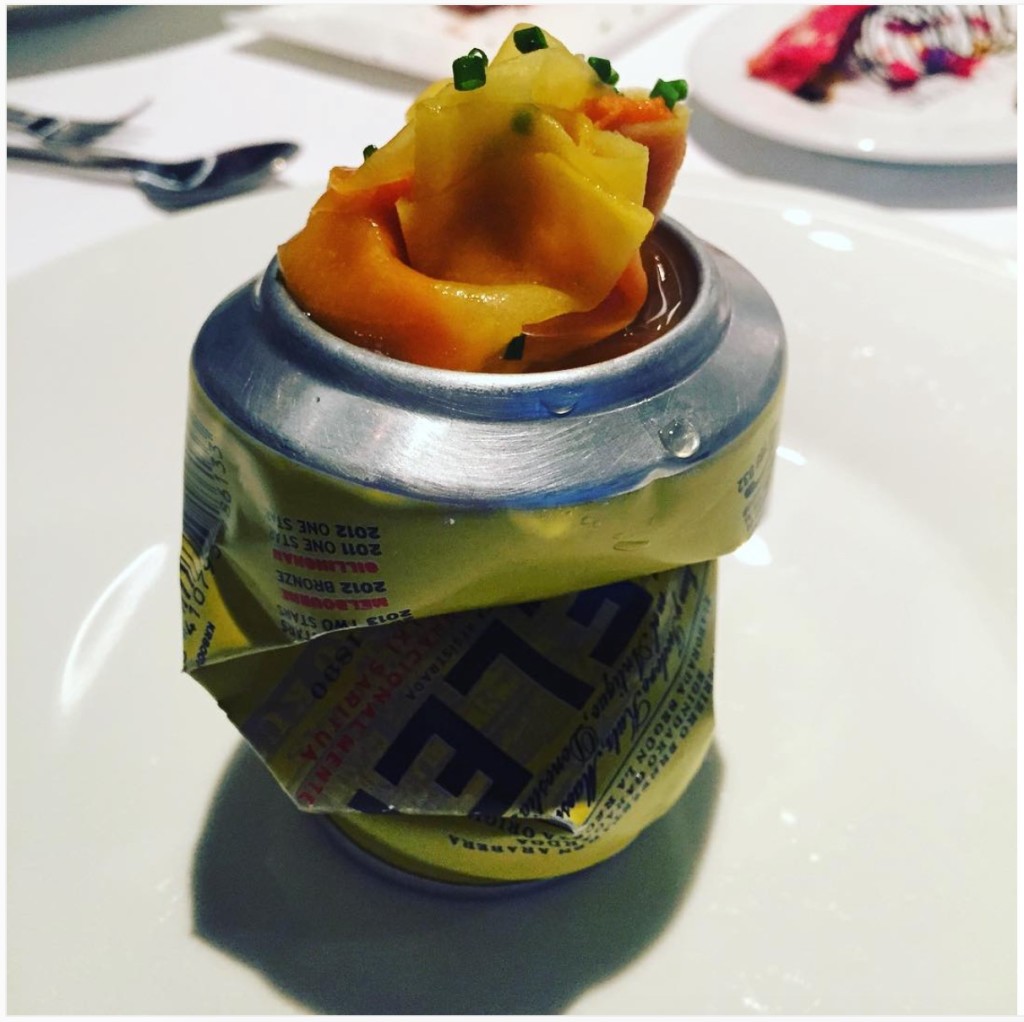
Photo Courtesy of @latelunches from Instagram
A number of Basque restaurants now feature in the world’s best restaurants, like Mugaritz, Arzak, Asador Etxebarri, and Azurmendi. Many more have collected awards and Michelin stars. And Basque chefs continue to push the boundaries of cooking
5. The Women Behind the Flavors
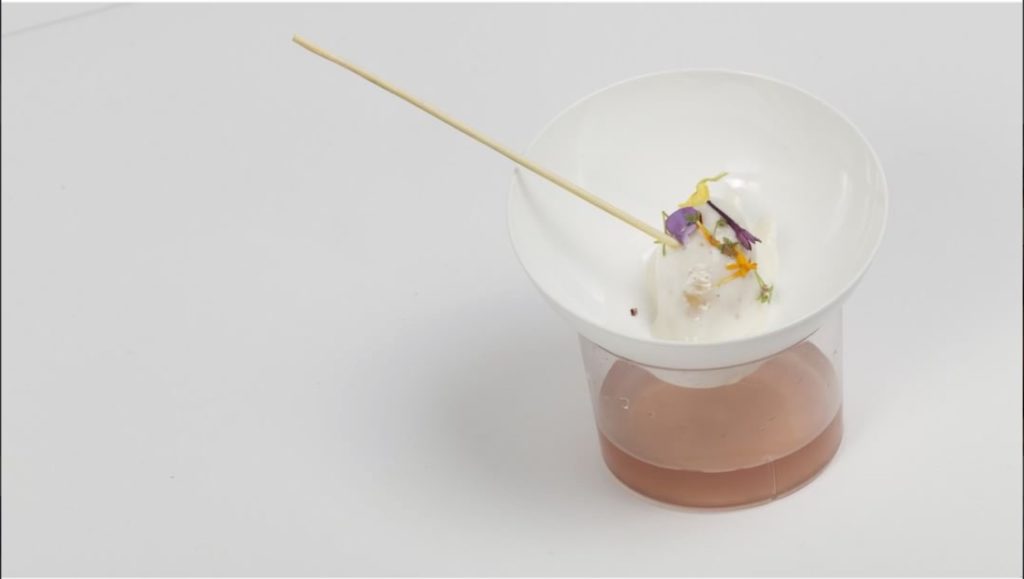
Photo courtesy of @ssgastronomika on Instagram
In particular, more and more female chefs are leaving their mark, like Elena Arzak who has taken traditional Basque meals to new heights. She even helped found La Nueva Cocina Vasca or ‘the new Basque cuisine’ with her father, Juan Mari.
6. A bright future locally, internationally…
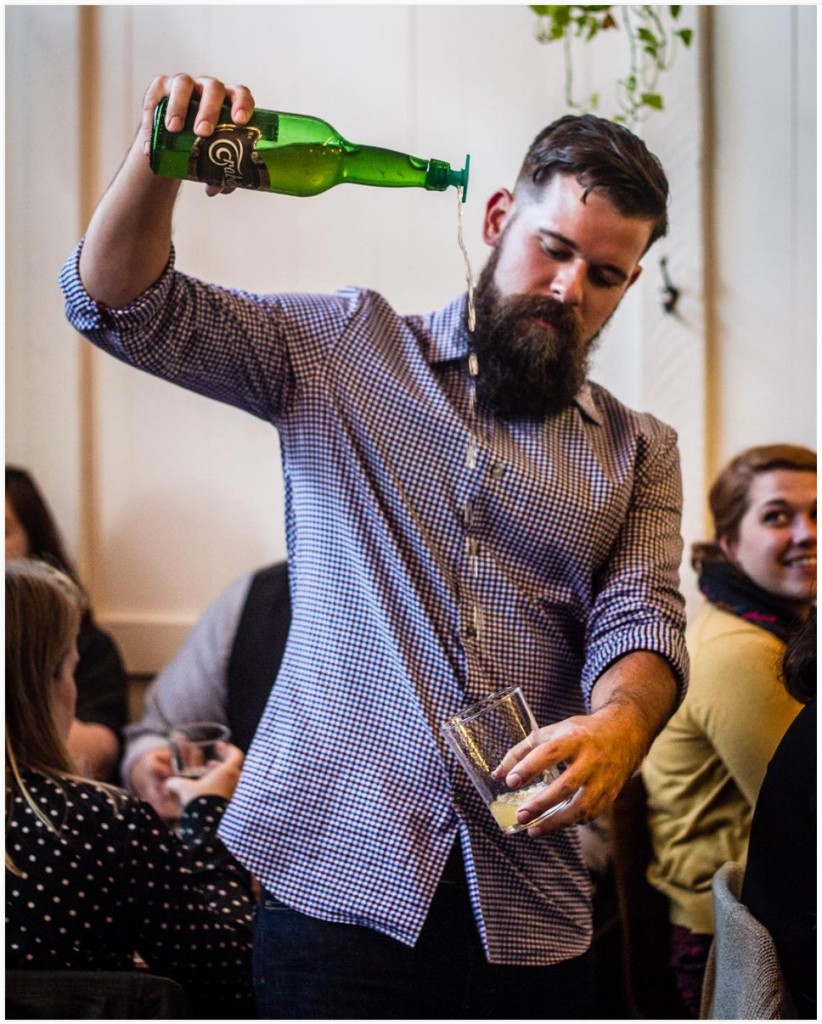
Photo Courtesy of @anxocider from Instagram
San Sebastian, Spain annually hosts Gastronomika, a culinary summit that draws in chefs and foodies alike. Not only does the event call attention to the innovation in Basque restaurants, but also highlights a different international cuisine every year. The city itself is tourist hotspot and was recently named 2016 European Capital of Culture.
…and in DC!
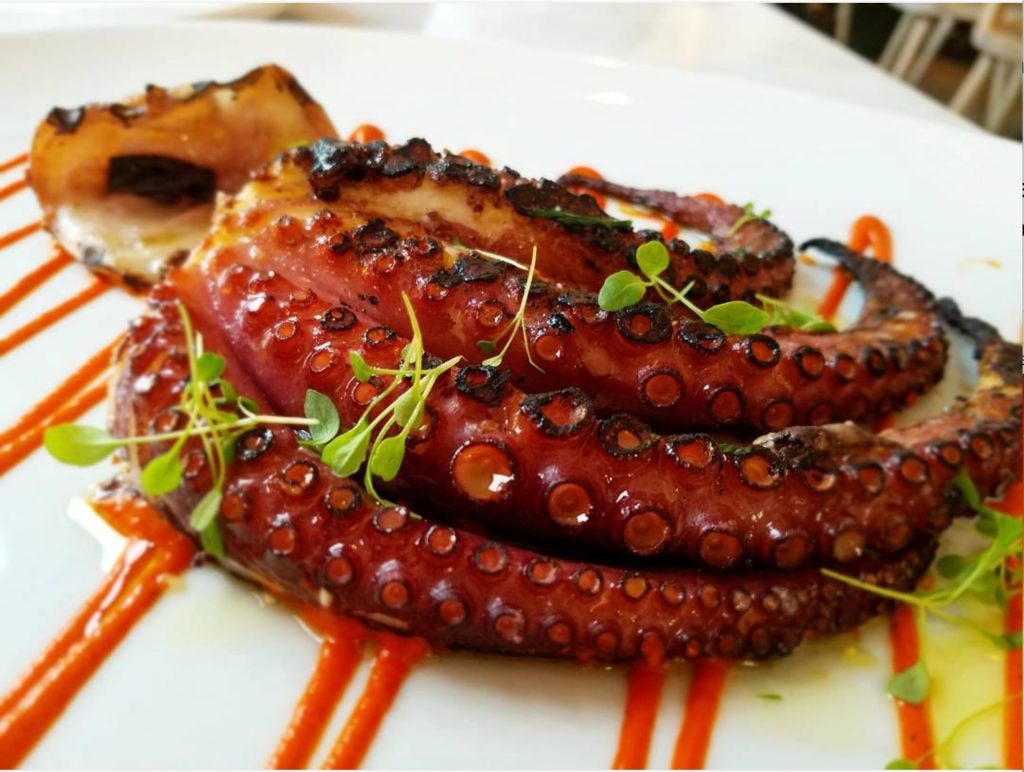
Photo courtesy of @food_vogue on Instagram
This summer’s Smithsonian Folklife Festival will be celebrating the Basques and their “innovation through culture,” which will show how much of this ingenuity can be tasted at the table. D.C. is also getting its first Basque cidery, bar and restaurant: Anxo (300 Florida Ave. NW) which is opening soon.
Although most of Basque cuisine is still limited to trendy restaurants, blogs, and imported products, I wouldn’t be surprised to see them start to pop up in dorm kitchens soon. So when you spot an intriguing Basque dish on a restaurant’s menu, order it and join the movement ahead of time. Maybe when you next reach for pepper to season your avocado toast, grab the piment d’Espelette instead..

